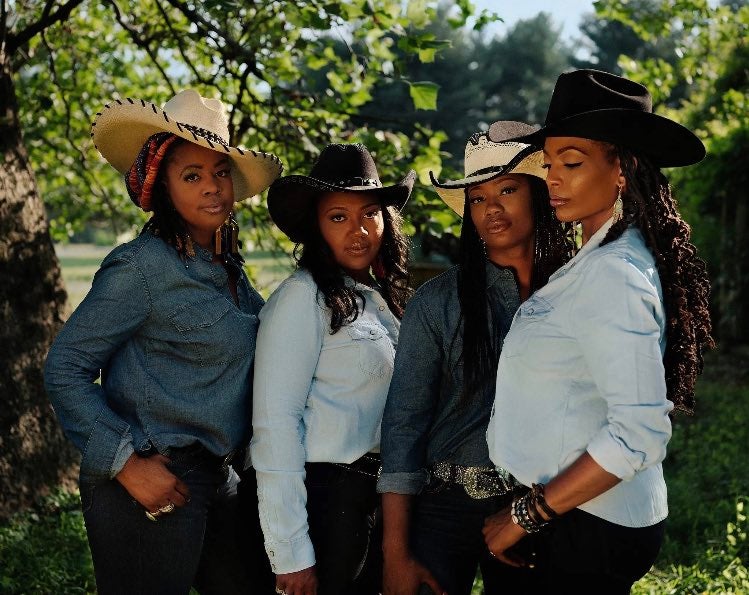
A cowboy walks into a bar…
That’s sort of how the story begins for Brittaney “Britt Brat” Logan and Kisha “KB” Bowles who after attending a party, the DC-area friends met a cowboy that changed their lives.
A seasoned horseman by the name of Dr. Ray Charles Lockamy recruited them to an all-women horseriding team, a decision that led to a discovery they didn’t know about themselves: they loved the rodeo.
“I’d discovered there was a huge Black cowboy scene here in Maryland, but it wasn’t until I started working with Ray did I realize how much I would love riding myself,” Logan said, who said she didn’t get on her first horse until she was in her twenties.
Similarly, Bowles, who was in her late thirties at the time, hadn’t ridden a horse at all before getting recruited into the group, eventually named the Cowgirls of Color in 2016.
“I had no idea I would love riding as much as I did but when they asked me to join, something in me said ‘why not?,’ so I did,” she said. The ‘they’ Bowles is referring to are the other founding members of the team, Sandra “Pinky” Dorsey, Selina “Pennie” Brown who has since left the group to pursue other endeavors.
Bowles explained that although both she and Logan loved the sport, it wasn’t easy.
“Ray was tough on us,” she shared. “He definitely created an environment where it felt like survival of the fittest—and honestly, it makes sense because competitive horseriding is a very challenging task.”
Although they’re not the first nor the only, the all-female Black rodeo collective is among a rare group in a field largely dominated by white men in the southern part of the country.
The Maryland natives wanted to shift the perception of what horseriding looks like, so they trained to compete in the Bill Pickett International Rodeo that same year.
Although they didn’t do as well as they hoped initially, it was still impressive considering the majority of the group riders were well into their adult years before saddling up for the first time.
For Bowles, the decision to keep riding was also deeply personal.
“My mother didn’t ride but she was really into the rodeo circuit, so when she passed around the same time as my joining the group, it really meant a lot to be able to stick close to an experience she would’ve loved.”
Bowles even shared that horseback riding acts as a form of therapy for her.
“I was really grieving, really hard,” she shared. “And I was just like, man, this is starting to make me feel better. Despite how tough the lessons could get sometimes, I just stuck it out and it ended up being something that I really loved because I was getting relief from the grief. Do you know what I mean? I just kind of got attached.”
Since the initial competition, the group has gone on to compete in others, gaining better placements, more respect, and more recognition both on a local and national level. So much so, brands began to approach to hear more about their story.
Among them are heavy hitters like Walmart, Wrangler, The Gap, and Ford.
But they humbly shared they’re not in it for the spotlight—their mission is larger than themselves.
“We are doing this to help people understand that not only do Black people ride, but Black women are here doing this too. Not only that, this is a form of therapy. We are still working through destigmatizing mental health and I can attest to the healing powers of riding. That’s what our communities need right now—healing.”